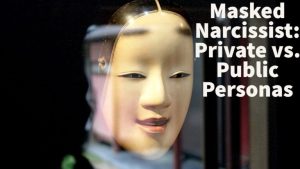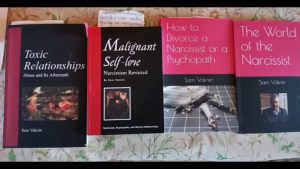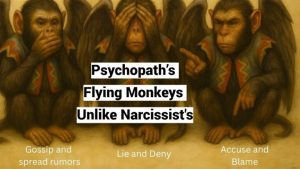- 1 Inner Experience of Narcissism and Borderline Personality Disorder
- 2 Narcissism as a Death Cult
- 3 Nature of Internal Objects in Narcissist’s Mind
- 4 Process of Stripping Away Life Attributes
- 5 Difficulty of Resurrection and Life after Early Narcissistic Damage
- 6 Psychological Implications of Death-Identification
- 7 Relationships and Loyalty
Inner Experience of Narcissism and Borderline Personality Disorder
- Narcissists experience their existence as non-existence, akin to death or emptiness, a feeling shared with borderline personality disorder, where emptiness is a diagnostic criterion. This illustrates a cognitive realization but without emotional acceptance ([00:00]).
Narcissism as a Death Cult
- Narcissism operates as a death cult, linked to Freud’s concept of the death drive. To internalize others as objects, narcissists must metaphorically kill them first, as living internal objects cannot exist in a mind equated with death ([00:28]).
- The narcissistic mother metaphorically kills her daughter early in life and then interacts with this “internal object” like a ghost, resembling a séance ([01:07]).
Nature of Internal Objects in Narcissist’s Mind
- Internal objects for narcissists are not alive but are ghosts or ephemeral apparitions without real substance or vitality. This highlights the absence of life in these internalized figures ([01:20]).
Process of Stripping Away Life Attributes
- Narcissists systematically rob others of their joy, sexuality, independence, agency, social connections, and financial autonomy to render them metaphorically dead, physically alive yet as zombies ([01:47]).
- This process often starts very early in life, as narcissistic mothers exert control and “kill” their children mentally by 18 to 36 months ([02:21]).
Difficulty of Resurrection and Life after Early Narcissistic Damage
- Recovering or “resurrecting” after this early psychological damage is akin to a religious miracle, involving a crucifixion (death) early in life ([02:41]).
- Individuals defined by the lethal gaze of the narcissistic mother see themselves as dead and their life as a celebration of death ([02:56]).
Psychological Implications of Death-Identification
- The more “dead” or less autonomous one is, the better they feel, as death becomes their comfort zone.
- Attempts to become independent or engage in life induce guilt and discomfort, revealing the internal conflict rooted in early narcissistic dynamics ([03:34]).
- The internal maternal introject sabotages efforts toward life and independence to maintain peace with the narcissistic mother ([04:11]).
Relationships and Loyalty
- Forming relationships with others is seen as a betrayal to the narcissistic mother, because others can provide life, independence, and perspectives that compete with the mother’s control ([04:35]).






